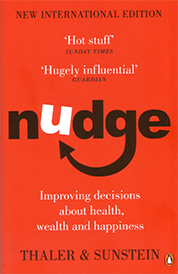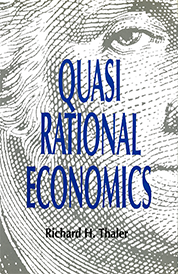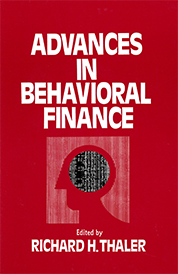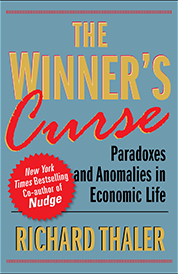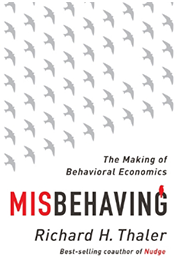In 2017, he was awarded the Nobel Memorial Prize in Economic Sciences for his contributions to behavioral economics. When discussing its selection of Thaler to receive the Nobel Prize, the Royal Swedish Academy of Sciences reasoned that his "contributions have built a bridge between the economic and psychological analyses of individual decision making. His empirical findings and theoretical insights have been instrumental in creating the new and rapidly expanding field of behavioral economics."
Richard H. Thaler studies behavioral economics and finance as well as the psychology of decision making which lies in the gap between economics and psychology. He investigates the implications of relaxing the standard economic assumption that everyone in the economy is rational and selfish, instead entertaining the possibility that some of the agents in the economy are sometimes human. Thaler is the director of the Center for Decision Research, and is the co-director (with Robert Shiller) of the Behavioral Economics Project at the National Bureau of Economic Research.
Thaler is the co-author (with Cass R. Sunstein) of the global best seller Nudge (2008) in which the concepts of behavioral economics are used to tackle many of society’s major problems. In 2015 he published Misbehaving: The Making of Behavioral Economics. He has authored or edited four other books: Quasi-Rational Economics, The Winner's Curse: Paradoxes and Anomalies of Economic Life, and Advances in Behavioral Finance (editor) Volumes I and II. He has published numerous articles in prominent journals such as the American Economics Review, the Journal of Finance and the Journal of Political Economy.
Thaler is a member of the American Academy of Arts and the co-director (with Robert Shiller) of the NBER project on behavioral economics. He has served as Vice President of the American Economics Association and was elected a Fellow of the American Finance Association.
Before joining the University of Chicago faculty in 1995 Thaler taught at the University of Rochester and Cornell as well as visiting stints at The University of British Columbia, the Sloan School of Management at MIT, the Russell Sage Foundation and the Center for Advanced Study in Behavioral Sciences at Stanford.
Originally from New Jersey, Thaler attended Case Western Reserve University where he received a bachelor's degree in 1967. Soon after, he attended the University of Rochester where he received a master's degree in 1970 and a PhD in 1974. He joined the Chicago Booth faculty in 1995.


